Hundreds of WWII love letters returned to family after 80 years
Lynne didn’t know anything about her parents’ younger lives, their first date or how they fell in love – until a hidden box of love and war letters found under their former home changed everything
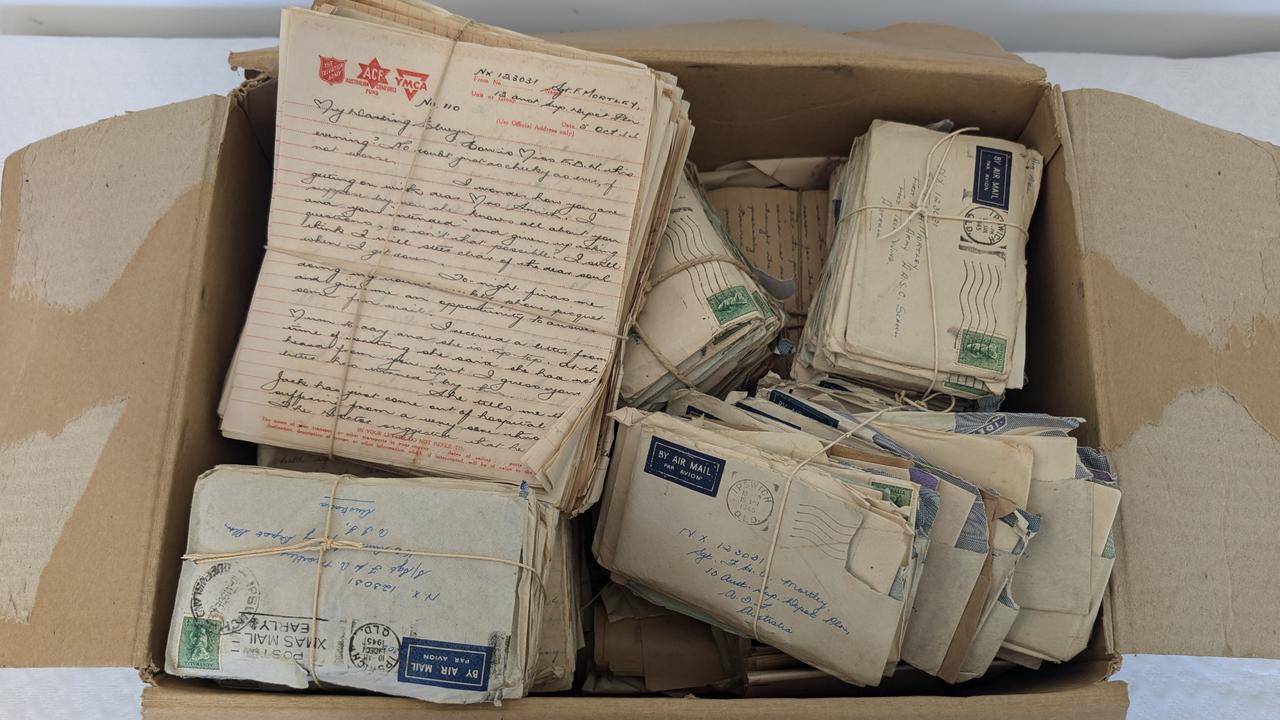
READING LEVEL: GREEN
If you stumbled upon a hidden box of your parents’ love letters, would you read them?
Lynne Smith did – and she discovered a side of her parents she had never seen before.
The 72-year-old Queenslander was left in “total shock” when she was contacted about a chance discovery at her childhood home – a box of love letters written by her parents, Fred and Elwyn Mortley, during World War II.
“It’s amazing. I never knew they existed,” Lynne said
Mr and Mrs Mortley weren’t a couple who spoke about the past, according to Lynne.
She knew they got engaged during WWII, later married and built a home on Sydney’s Northern Beaches, and that they “respected each other”, but that was about it, she said.
No first date story. No moment he popped the question*. No detail. Growing up, Lynne’s only clue to her parents’ romance were her mother’s short diary entries: “Received a letter from Fred.”
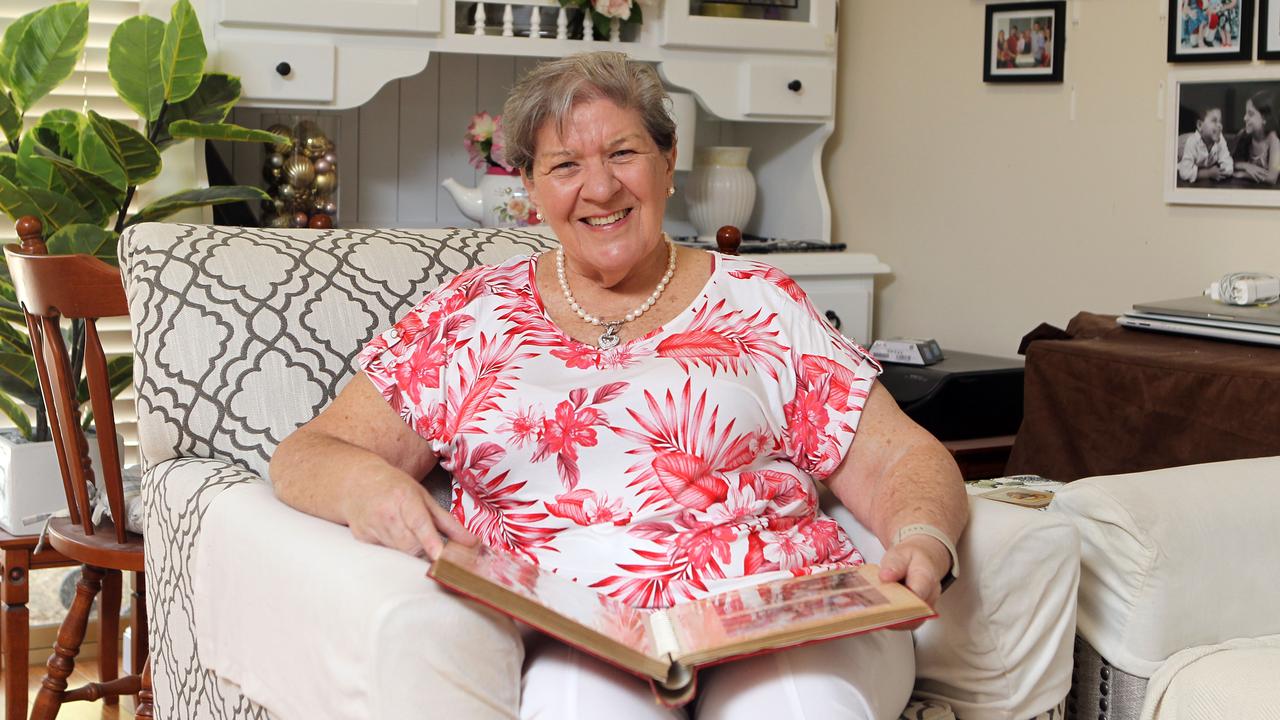
In the years since, she said she had often wondered what they would have written to each other while her dad was away at war, but assumed she’d never know — her private, “reserved*” parents passed away almost three decades ago. When the family home was sold, no trace of their writing had been found.
But last week, everything changed when the home’s current owners put out a call for help on social media to find surviving members of the Mortley family. They had stumbled upon a box tucked away in the home’s underground storage, full of letters addressed to Sergeant F. Mortley and Elwyn B. Wombold.
A friend of Lynne’s saw the post and quickly got in touch.
“(I was) very emotional and cried. I rang (my sons) immediately and a few very close friends who knew Mum and Dad very well,” she said.
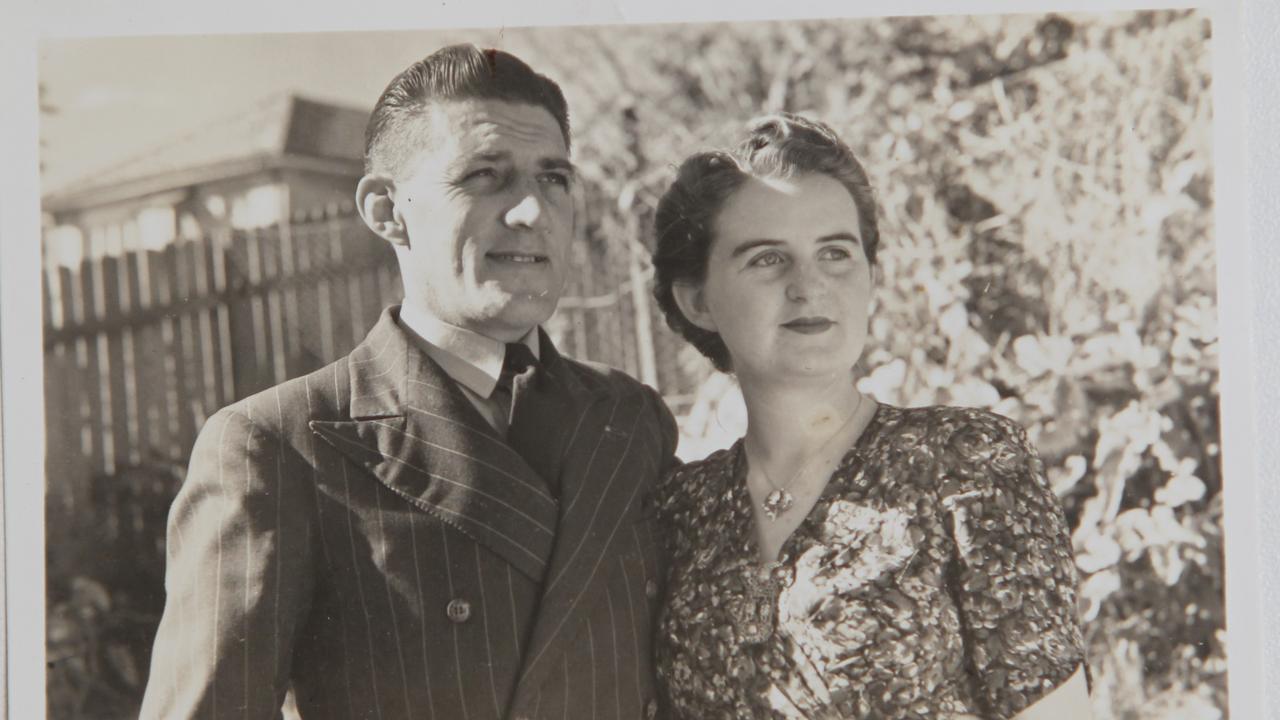
Despite being 80 years old, the letters were in good condition. They were bundled together with twine rope and thread and written in sprawling handwriting.
While Lynne now lives far from her childhood home and hasn’t had the chance to read all of the letters, she gave Sydney newspaper The Daily Telegraph the first opportunity to read through them. And what they tell is an incredible love story.
In one love note, dated January 1945, while sitting in an army barracks*, 27-year-old Fred wrote to Elwyn, then aged 20: “I do long for the day when I can actually hold you in my arms and kiss you till my heart sings.”
Meanwhile, Elwyn, who Lynne remembered as a serious and strict mother, writes as a cheeky girl, teasing her fiance* and longing for his safe return.
“Hello sweetheart, are you behaving yourself tonight? I hope not taking any strange women out seeing it is our Wednesday night,” she wrote.
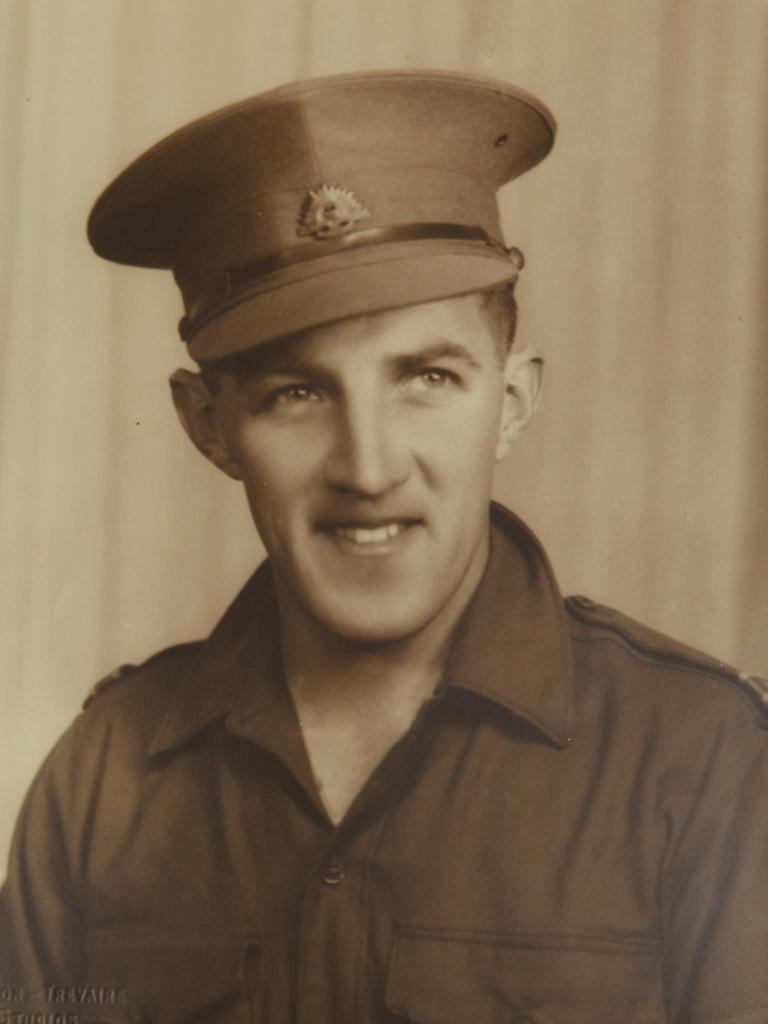
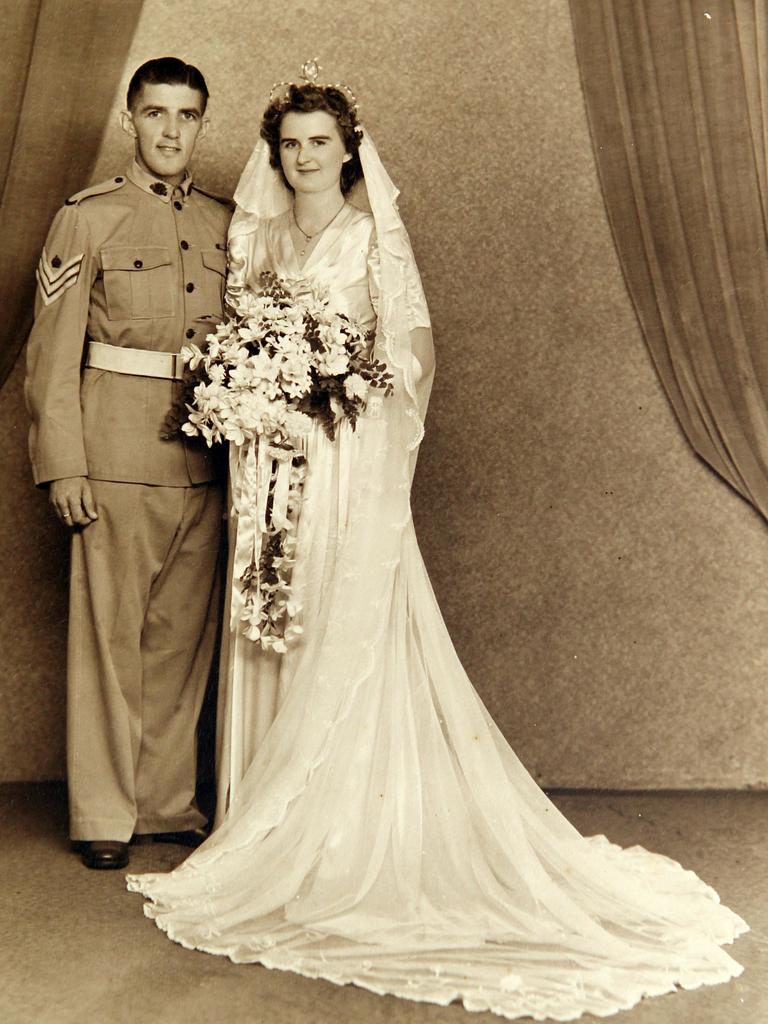
The letters show a side of her parents Lynne never knew existed.
“They were always very kind to each other. But I never saw that, you know, touchy feely kissing on the cheek type action,” she said.
Over the course of almost 500 letters, the couple discussed life in the middle of World War II. Everything is different today, yet in some ways, nothing has changed.
In a letter dated August 24th, 1945, Elwyn complained to Fred that the full moon had driven her nutty. In another, Fred teased Elwyn for rooting for a footy team from a different area.
The couple rarely discuss the war directly, but there’s complaints about the postal service and discussions of those they’ve lost.
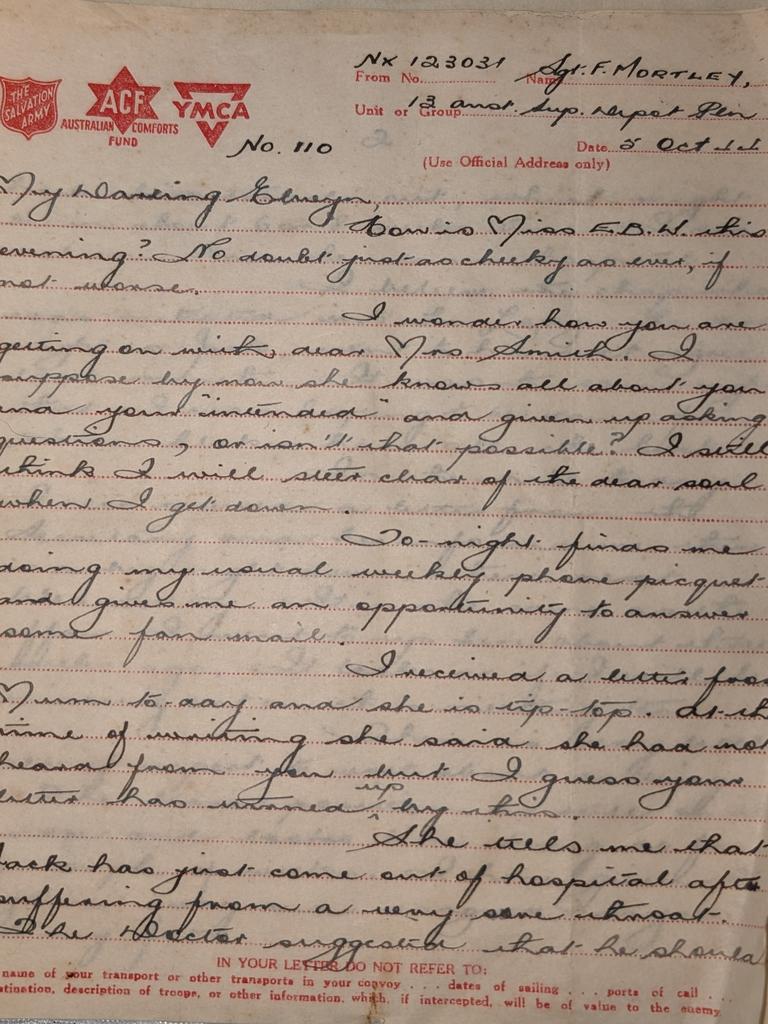
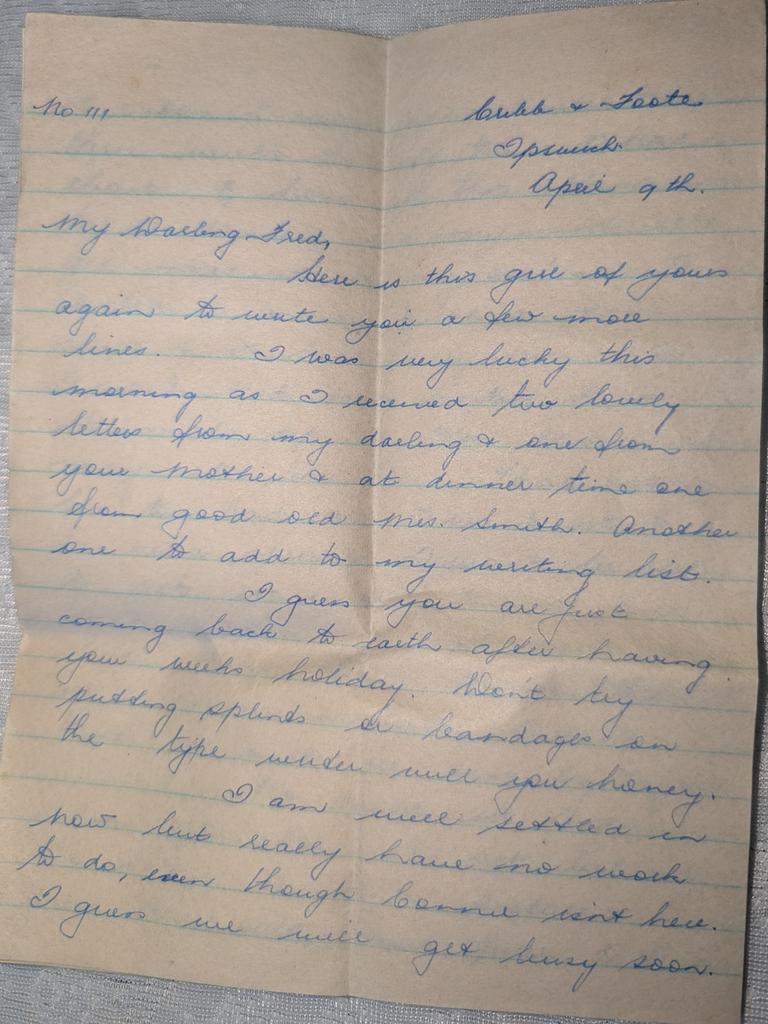
One letter mentions a woman they knew who had to wait two years to find out her son had died because the letter was lost, while in another, Fred complains to Elwyn that heavy rain had caused his tent to collapse in the middle of the night.
“Such is life in the army and I sincerely hope it won’t be long before I am out of it for good,” he wrote.
In another letter, dated two weeks before World War II officially ended, Elwyn wrote: “I’m listening to the news and it sounds pretty good for you to be home before long my darling. Gee, I hope they mean it, honey.”
As to how the letters stood the test of time, Lynne suspects her father hid the letters away because he wanted his children to one day find them.
“He kept them for all those years. I feel deep down, he did want us to find them one day,” she said.
POLL
GLOSSARY
- popped the question: also known as asking someone to marry them
- reserved: not showing much emotion or feeling
- army barracks: buildings where soldiers live and work
- fiance: someone engaged to be married
EXTRA READING
Letters worth writing home about
Kids told to ‘just ask’ about amazing war stories
Zucchini isn’t the bomb
QUICK QUIZ
1. How many letters were found in the box under Lynne’s childhood home?
2. How was the treasure discovered?
3. How old are the love letters?
4. Why does Lynne suspect the box of letters were hidden under the house?
5. In what way has the discovery given her a different view of her parents?
LISTEN TO THIS STORY
CLASSROOM ACTIVITIES
1. Modern day love letters
The old fashioned art of sending letters is rapidly decreasing with modern technology, meaning precious things like letters to loved ones will be no more.
How do you think we can document correspondence to friends, family and loved ones in this modern era that can somehow be kept and passed down? Write some suggestions below.
Time: allow 15 minutes to complete this activity
Curriculum Links: English, Personal and Social, Critical and Creative Thinking
2. Extension
Is it an invasion of privacy to read your parents or other loved one’s personal letters or do you think it’s OK after a certain amount of time has passed?
Would you like your children to read your letters from the past?
Time: allow 10 minutes to complete this activity
Curriculum Links: English, Personal and Social, Critical and Creative Thinking
VCOP ACTIVITY
Read this!
A headline on an article – or a title on your text – should capture the attention of the audience, telling them to read this now. So choosing the perfect words for a headline or title is very important.
Create three new headlines for the events that took place in this article. Remember, what you write and how you write it will set the pace for the whole text, so make sure it matches.
Read out your headlines to a partner and discuss what the article will be about based on the headline you created. Discuss the tone and mood you set in just your few, short words. Does it do the article justice? Will it capture the audience’s attention the way you hoped? Would you want to read more?
Consider how a headline or title is similar to using short, sharp sentences throughout your text. They can be just as important as complex ones. Go through the last text you wrote and highlight any short, sharp sentences that capture the audience.

